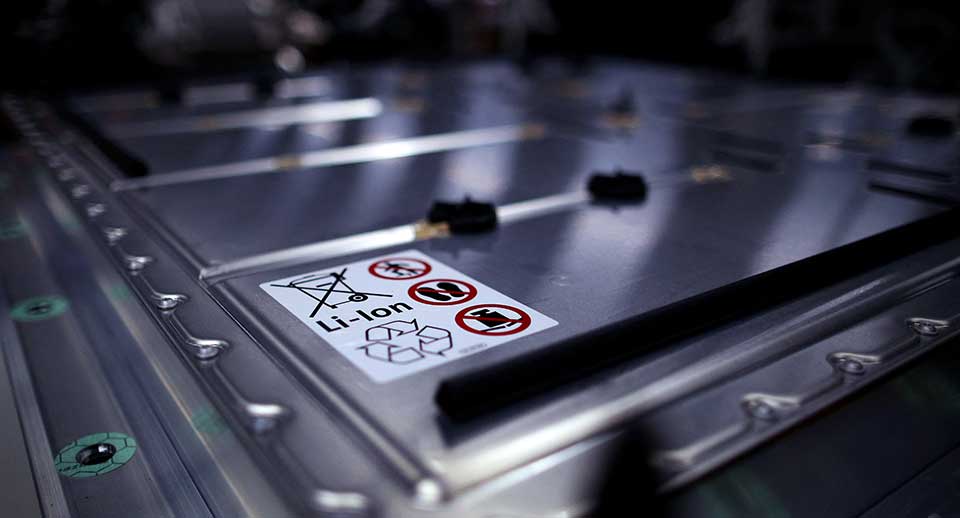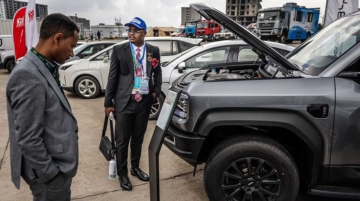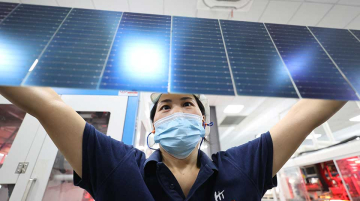
This is a free preview of the upcoming Africa EVs Weekly Digest, part of the new CGSP Intelligence service launching in Summer 2025.
The African electric vehicle landscape is changing rapidly thanks to the arrival of new companies and products. Many successful solutions are tailored to local needs but take a global approach.
With various contenders seeking a piece of the e-mobility pie, the dynamics are bound to change, as established players with a first-mover advantage face encroachment on their territory.
This challenge to the status quo will have two possible outcomes. For buyers, better prices and quality; for suppliers, the possibility of thinner profit margins and increased competition.
This week on EVs in Africa:
Indian E-Mobility Company to Set Up Shop in Ethiopia
India’s EKA Mobility will establish a Completely Knocked Down (CKD) electric vehicle assembly, distribution, and after-sales operations in Ethiopia, targeting the East African market.
In partnership with Ethiopia’s Kerchanshe Trading PLC, the two organizations also plan to introduce EVs to Ethiopia and the neighboring countries.
Why This Matters: Chinese vehicle brands have established themselves in Ethiopia, and EKA’s entry will change the dynamics, including pricing and vehicle quality. If the political rivalries between China and India play out in Ethiopia’s EV market, this could add another dimension to the economic relationships between BRICS+ partners.
Mulling South Africa’s Joint EV Battery Strategy With Europe
For South Africa to position itself as a global EV supply chain player, collaboration to build an alternative “value chain” for electric vehicle components, such as batteries, is paramount.
BMW’s CEO in the country, Peter van Binsbergen, notes that reducing dependence on China is possible by having South Africa partner with Europe to build alternatives.
Why This Matters: South Africa accounts for 51% of Africa’s vehicle market, but China dominates the global battery cell production. Even if South Africa partnered with Europe to build batteries, it’ll take years to build and perfect the infrastructure, which means that the ambitions are not realistic in the short term.
Xiaomi SU7’s Lethal Crash in China
Videos and photos of a Xiaomi SU7 Ultra that caught fire after a crash in Chengdu circulated on Chinese social media for the better part of Monday, raising questions over the use of electronic doors in vehicles.
Why This Matters: While most of these vehicles remain out of the financial reach of many African buyers, the possibility of them ending up on the continent is high, given the appetite for second-hand vehicles. With the tech failing while the cars are relatively new, what will happen when they age, and African buyers face delayed software upgrades?
Mounting EV Waste in Southern Africa
Failing EV parts and dead lithium-ion batteries are creating a pollution problem in some African countries due to the complexity of repairing and recycling them.
In countries where mechanics are proficient only in internal combustion engine vehicles, batteries and other components end up in landfills because there is no infrastructure to recycle them.
Why This Matters: African countries have long struggled with e-waste and EVs will no doubt exacerbate this problem. With the popularity of second-hand vehicles, African countries need to develop policies and mechanisms to manage the waste that will accumulate as the influx of these vehicles increases.
In context
EV technology promises to revolutionize mobility globally, and African countries would be the biggest beneficiaries due to the potential cost savings on fuel. However, concerns about mounting e-waste and accidents are growing even as local assembly gathers pace. This creates room for rethinking what an ideal e-mobility future would look like for African countries.
The takeaway: The EV space in African countries remains promising, but developments outside the continent still have an enormous impact on the sector. As Indian and Chinese automakers vie for influence, and South Africa eyes a European battery alliance, Africa’s e-mobility future faces both promise and peril.












